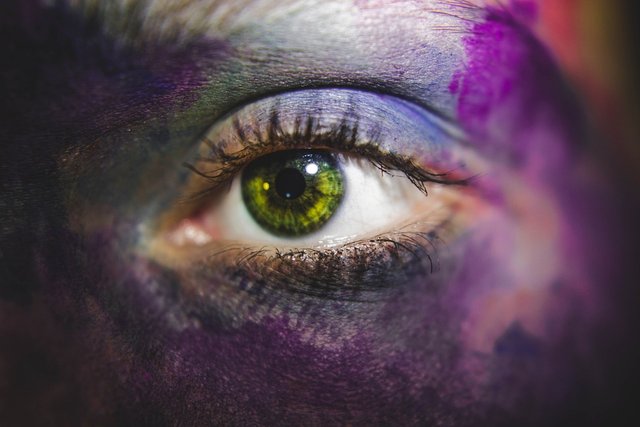Bismillahir Rahmanir Rahim |
|---|
 |
|---|
The Fiendish Eye: History, Meaning, and Social Noteworthiness The concept of the fiendish eye is one of the most antiquated and persevering convictions in human history, cutting over societies, religions, and civilizations. Established in the thought that envy or noxious aim can cause hurt through a look, the fiendish eye is both a image of peril and a call for security. The fiendish eye conviction dates back thousands of a long time, with prove found in antiquated Mesopotamian, Egyptian, Greek, and Roman civilizations.
The to begin with known delineations of defensive images against the fiendish eye were found in Mesopotamian artifacts from 3,000 BCE. Additionally, in antiquated Rome, individuals utilized special necklaces and engravings to ensure themselves from the malocchio, the Roman term for the fiendish eye. In early Christian and Islamic conventions, the fiendish eye picked up a religious measurement. Islamic lessons specify the fiendish eye (ayn al-hasud) in the Qur’an and Hadiths, emphasizing the need of supplication and dependence on God for security. While the fiendish eye is all inclusive in concept, its representation changes broadly over societies.
In numerous Mediterranean social orders, the most common defensive image is the nazar, a blue eye-shaped ornament accepted to avoid destructive vitality. In Hinduism and Buddhism, the concept of the fiendish eye adjusts with convictions in karma and otherworldly vitality. In numerous societies, ceremonies to neutralize the fiendish eye include activities such as spitting, the burning of incense, or recounting particular supplications. Across the world, the fiendish eye conviction shows in special shapes:
 Copyright free image downloaded from pixabay.com Copyright free image downloaded from pixabay.com |
|---|
Center East and Mediterranean: In these districts, the fiendish eye is closely tied to envy and the thought that victory or excellence might draw in negative consideration.
South Asia: Known as nazar dosh in India, the fiendish eye conviction is connected to success and wellbeing.
Africa: In numerous African societies, the fiendish eye conviction is joined with concepts of witchcraft and envy.
Western Societies: Whereas conviction in the fiendish eye has lessened in cutting edge Western social orders, its impact endures in well known culture, mold, and otherworldly hones.
 |
|---|
Adornments highlighting the fiendish eye image has ended up a worldwide drift, mixing stylish offer with its defensive implications. Beyond its supernatural viewpoints, the fiendish eye reflects deep-seated human feelings and social flow. Psychologically, the concept of the fiendish eye can be seen as a adapting instrument for incident. At the same time, the fiendish eye conviction can fortify social cohesion, empowering individuals to direct envy and celebrate the triumphs of others. In today’s interconnected world, the fiendish eye remains a strong image of security and mindfulness. Numerous modern specialists of otherworldly existence join the fiendish eye into their ceremonies, mixing antiquated shrewdness with advanced translations of vitality and intent. As an crossing point of old stories, brain research, and imagery, the fiendish eye proceeds to captivate researchers, otherworldly searchers, and regular individuals.

Thanks everyone for reading my post today. |
|---|

Upvoted! Thank you for supporting witness @jswit.
Downvoting a post can decrease pending rewards and make it less visible. Common reasons:
Submit
Welcome to Dream Steem! I'm not labelling you as an author yet; apart from lexical excerpts and a cultural-historical classification, I haven't read anything from you yet: we are the Community for fiction writers and poets. You can read about our profile in the author guidelines and in the straightforward rules...
Downvoting a post can decrease pending rewards and make it less visible. Common reasons:
Submit
Thank you so much for welcoming me to your community, of course I will try to read all your rules and move forward accordingly, hopefully I will be recognized as a writer and follow all the rules.
Downvoting a post can decrease pending rewards and make it less visible. Common reasons:
Submit